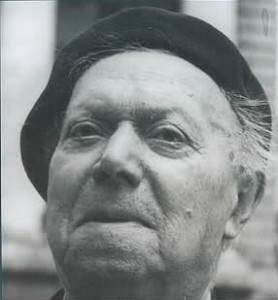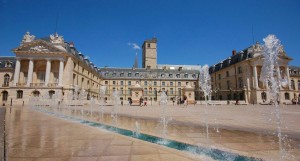Poetry in Translation (CCCXVII): Constantin ROMAN (b. 1941), ROMANNIA/ENGLAND – “Abbot Kir”, “Abatele Kir”
Constantin ROMAN (b. 1941)
ABBOT KIR
Our good Abbot Kir
Had a dream rather queer,
Even though, he agreed, somewhat vain…
To his flute of Champagne
He would add some cassis
And he found the result utter bliss!
* * * * * *
Constantin ROMAN (n. 1941)
ABATELE KIR
Când Abatele Kir, de acel renume,
S-a trezit din vis,
Turnând şampanie-n casis,
N-a crezut de fel,
Că acest cocktail,
Îi va duce o faimă în lume.
* * * * * *
SHORT BIO: Abbot Félix KIR (January 22, 1876 – April 26, 1968) was a French Catholic priest, resistance fighter and politician.
Born at Alise-Sainte-Reine on the Côte-d’Or, he entered the seminary at Plombières-lès-Dijon in 1891 to be ordained 1901. After his graduation he worked as a parish priest. During the occupation of France in World War II, Abbot Kir took an active part in the French Resistance, helping with the escape of 5,000 prisoners of war from a camp at Longvic. He was arrested and condemned to death, but he was released because of his status. He continued organizing operations, and was seriously wounded, but escaped interrogation by the Gestapo.
In 1945 he was made a knight of the Légion d’honneur and was elected mayor of Dijon and to the French National Assembly. He remained mayor of Dijon up to his death.
He was a colourful character, with a sharp sense of humour. He worked in his lifetime he wanted to create his own legend by claiming extraordinary feats. Somewhat eccentric, he never hesitated to wear a policeman cap to direct the traffic outside the town hall of Dijon, where he was mayor. He was reputed to have answered a Communist deputy who challenged his faith, on the basis that people believed in God without seeing him, the Abbot replied: “And my ass, you’ve not seen it either and yet it exists!”. Felix Kir was the last Member to have worn a priest’s cassock on the benches of the Chamber of Deputies and in the gallery of the National Assembly. At the rostrum of the meeting, he had this formula:
” My dear fellow-members, I am accused of turning my coat and yet, you see, it is black on either side!”
The Internationally- popular cocktail “Kir”, named in his honor, is a mixture of white burgundy wine, traditionally Aligoté, mixed with Crème de Cassis, a sweet, blackcurrant-flavored liqueur. The Canon always served it to the guests of Dijon’s City Hall, where he was mayor for decades. When going by train to Paris he is reputed to carry a shopping bag containing a bottle of white wine and a bottle of blackcurrant liqueur and offered a “Kir” to his fellow travellers.
During an official visit to France, the Soviet leader, Nikita Khrushchev came specially to Dijon on 28 March 1960 to meet with Canon Kir. However this interview never took place as the Canon was adviced against it by the Bishop of Dijon, because of persecution of Catholics in communist countries. Still, Canon Kir met a few weeks later Nikita Khrushchev at the Soviet Embassy in Paris. There he was invited to visit the Kremlin in September 1964 where he was received by Krushchev himself.
(Adpted from the French Wikipedia)
NOTE: When ordering a “kir”, in France, waiters sometimes ask whether you want it made with crème de cassis (blackcurrant), de mûre (blackberry) or de pêche (peach).
The International Bartenders Association gives a recipe using 1/10 crème de cassis, but French sources typically specify more; 19th century recipes for blanc-cassis recommended 1/3 crème de cassis, which modern tastes find cloyingly sweet, and modern sources typically about 1/5. Replacing the crème de cassis with blackcurrant syrup is discouraged.





i did not know I owed thanks to a patriot priest for the occasional summer kir. an interesting short bio. thanks.
Well, I happened to have known the mixture for as long as I’ve visited France ;0), but it was not until I composed this ditty that I looked a little closer to find that Abbot Kir was a fun character…
… and btw I carry on this obsession with poetry translation as a means of “massaging” my brain ;0) as I know that fewer and fewer people are interested in poems especially when they come from more obscure parts of the world or are written by unknown illustrious! Thanks for your attention, Richard.